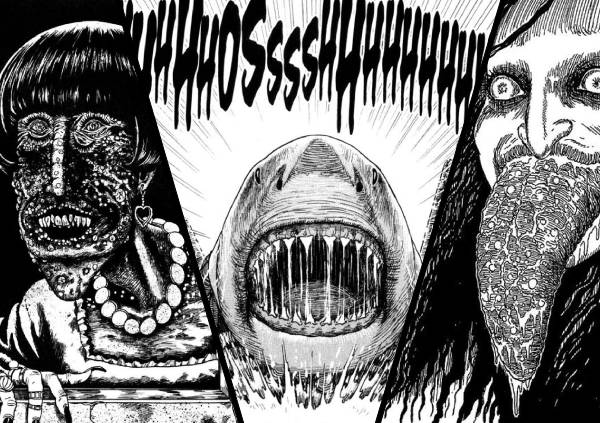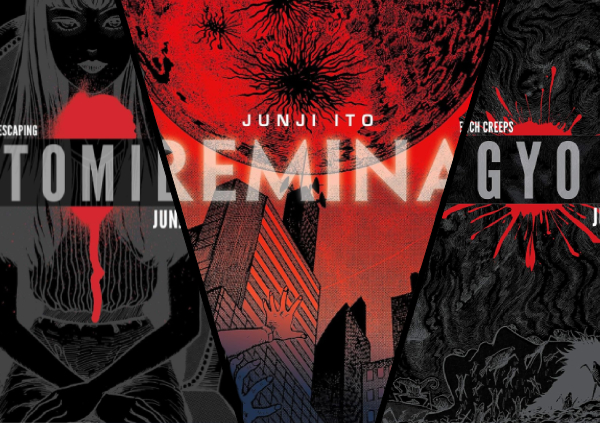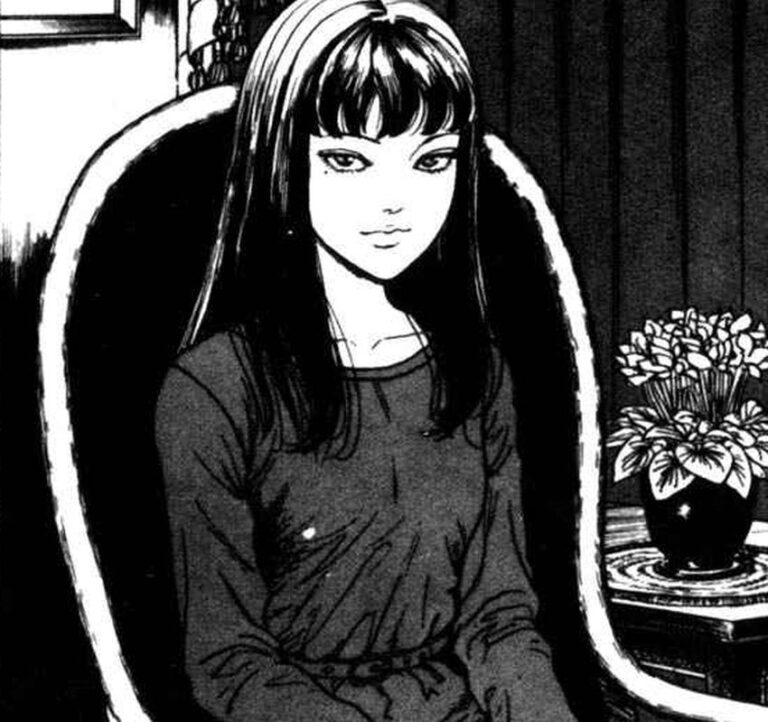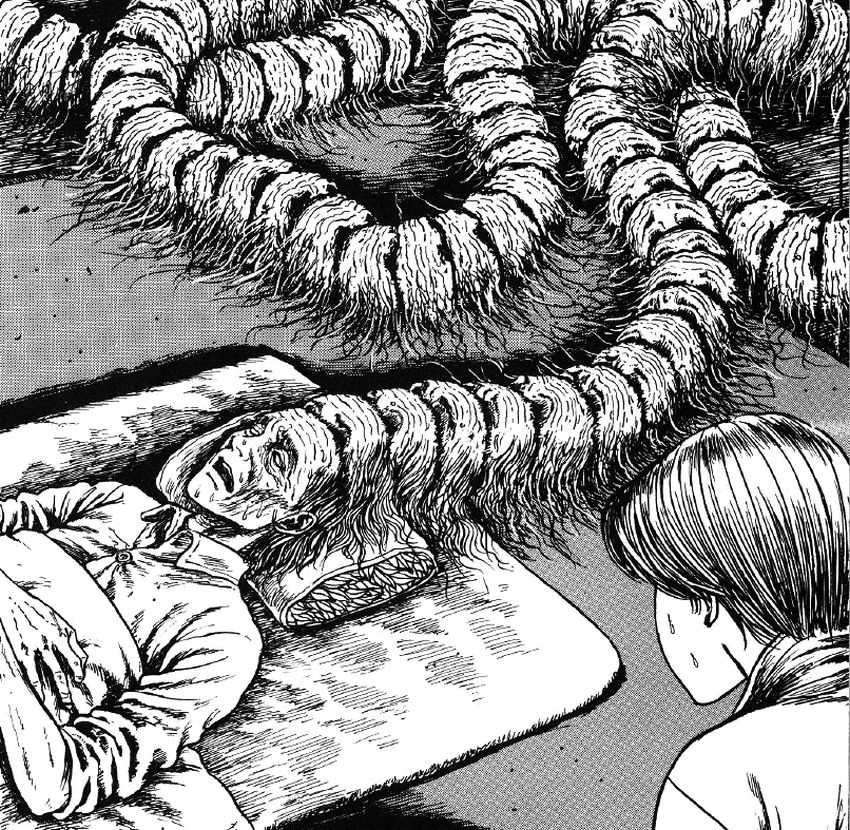
My Dear Ancestors is one of Junji Ito’s most bizarre and grotesque short stories. While it stands out for its body horror and disturbing imagery, the story conceals much deeper themes.
It’s a tale about the nature of memory, of tradition and the suffocating burden of family expectations.
Plot Overview – A Bizarre Family Secret
Risa, a young woman, is suffering from temporary amnesia and plagued from reoccurring nightmares of a giant, caterpillar-like creature. Her boyfriend, Shuichi, takes her to his family home, hoping it will help her recover.
There, she meets Shuichi’s father. The old man, however, doesn’t step into the room, but enters it unnaturally crawling like some sort of crab. From that moment on, the story takes a turn toward complete madness.
As Risa’s memories return, she recalls a horrifying truth. Shuichi’s father has a chain of human skulls stuck to the top of his head. They are the remains of his ancestors, fused to him and allowing them to live on.
This monstrous form is the source of Risa’s nightmare, and the trauma of seeing something this surreal forced her mind to block it out. Even worse, not only is Shuichi’s father dying, but Shuichi himself is next in line. Thus, he’s commanded by his ancestors to bring Risa into the family, to bear a child and to continue the line. No matter the cost.
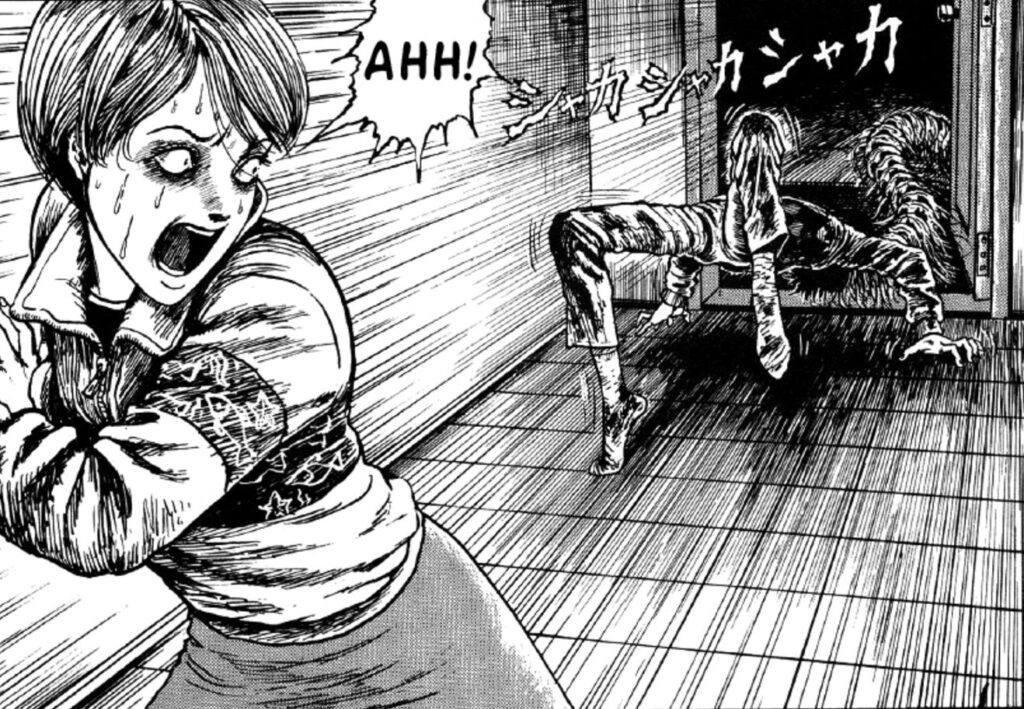
What Makes My Dear Ancestors So Good?
At first glance, the story appears nothing but a surreal nightmare. The creature design is fantastic. The stacked skulls give the appearance of a segmented worm and are amongst Ito’s most visually unsettling images. Another is the movements of both Shuichi and his father. They are uncanny, twisted, and showcase Ito’s prime inspiration for the story: The Exorcist.
Yet it’s the psychological impact that gives the story depth. Risa’s amnesia isn’t just a random plot device. It’s a clear reflection of the trauma she suffered.
There’s also the realization that Shuichi himself is complicit. At first, he appears caring, but it’s revealed that he’s long accepted the family tradition. Risa’s role is now nothing but a vessel to continue it. Even worse, when Risa breaks down under the sheer weight of the horror, not only the ancestors, but even Shuichi himself rejoices.
This reveals the story’s true horror. It’s not about the grotesque stack of skulls, neither the uncanny crab-walk, but the crushing weight of family pressure.
Deeper Themes – Memory, Tradition, and the Loss of Autonomy
Risa’s amnesia, as mentioned before, represents the brain’s instinct to protect itself. Seeing something too horrific to comprehend can twist our mind and force us to bury our memories. Yet they sometimes resurface, taking on different shapes and haunting us like nightmares. In Risa’s case, her nightmares can almost be seen as warnings of something unnatural coming for her.
The literal chain of ancestors is a grotesque metaphor for intergenerational pressure. Shuichi isn’t allowed to live his own life. Instead, he’s expected to continue the family line. Love is conditional. He’s only allowed to marry Risa if she agrees to bear a child. It shows that the only thing that matters is continuing the family line.
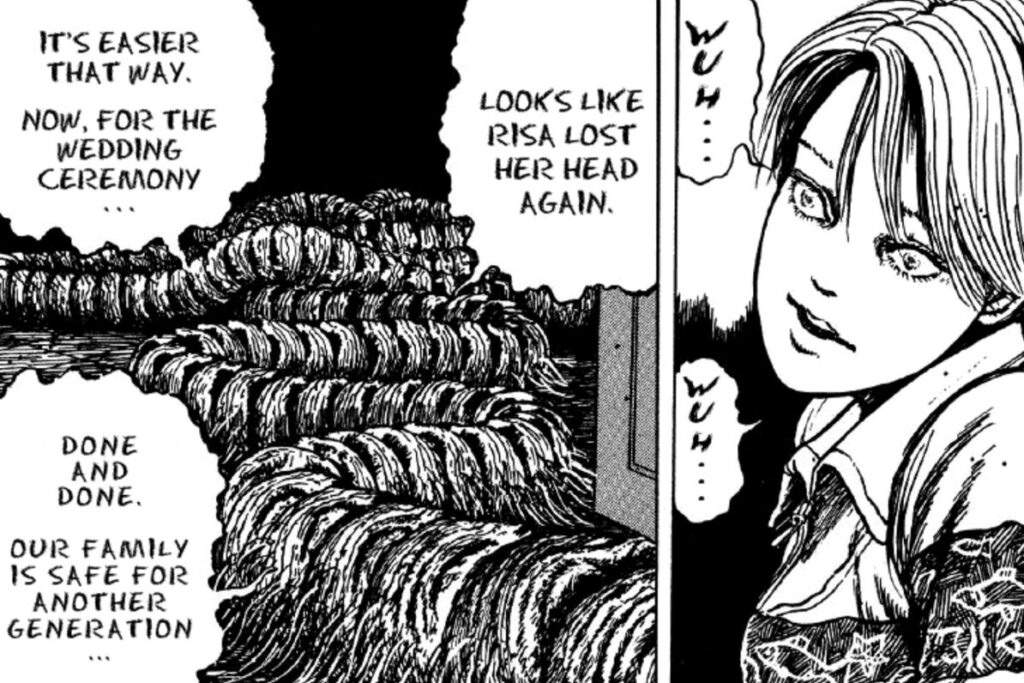
When Risa’s mind finally breaks, the ancestors are delighted. Her will, her wishes and dreams, none of them matter. Now she’s compliant. This moment can be interpreted as a chilling critique of how traditional and patriarchal societies have historically viewed women. They weren’t seen as people with agency, and only tools to bear children and continue the family line. Which is a problem that’s still prevalent in Japanese society, amongst others, even today.
Whether Ito meant it as a direct social commentary or not, the horror still resonates because it reflects something real.
Final Verdict – Bizarre, Grotesque, and Emotionally Devastating
My Dear Ancestors is one of Junji Ito’s most visually disturbing stories, but also one of his most layered. While its body horror is front and center, it’s also about how deeply tradition can influence our own identity.
By the end, what horrifies us the most is not the monstrous family, but Risa’s fate. She’s broken, her agency gone and her future sealed. And the worst part? Everyone around her is celebrating it.
If you enjoy horror stories that combine surreal horror with disturbing metaphors, My Dear Ancestors is a must-read.
If you enjoyed this, you might like my in-depth review of The Thing That Drifted Ashore.
You can find My Dear Ancestors in Junji Ito’s collection Shiver, available on Amazon.

